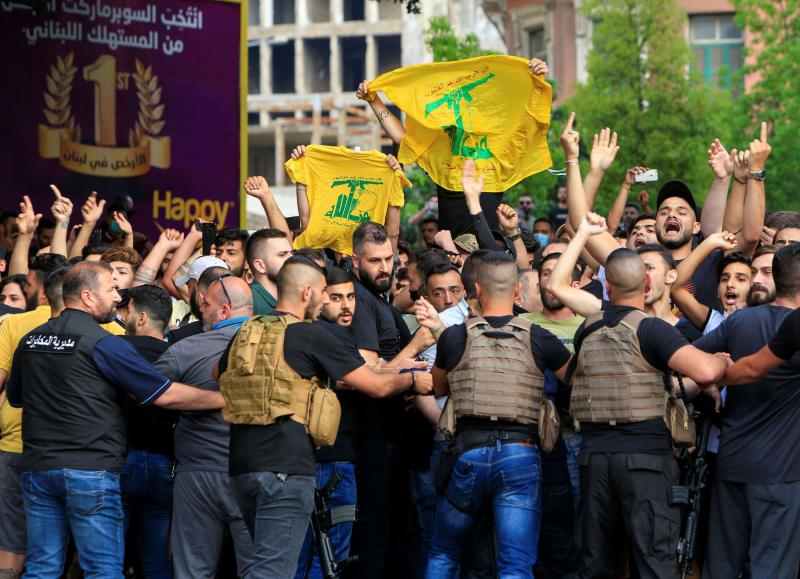by Georgi Azar
Republican congressmen released this week a comprehensive policy proposal to impose the largest bundle of sanctions to date on Iran, which includes debilitating recommendations to cripple Hezbollah and its Lebanese allies.

The proposal looks at cutting all funding for US security assistance to the Lebanese Armed Forces (LAF); prohibiting the sending of taxpayer money to the International Monetary Fund (IMF) to bail out bankrupt Lebanon and expanding sanctions on Hezbollah and its allies in Lebanon.
The United States grants the Lebanese Armed Forces (LAF) $160 million a year taxpayer-funded support. The purpose of such assistance, according to U.S. law, is to “professionalize the LAF to mitigate internal and external threats from non-state actors, including Hezbollah.”
The plan, however, has backfired, republicans say, given the group’s “increasing influence” over the LAF.
“With the Lebanese government now under the control of Hezbollah and its allies, which hold a solid majority in the parliament, it is even harder to argue that funding the LAF is achieving anything other than propping up the Iranian order maintained by Hezbollah,” the proposal says.
The Republican task force, which drafted the RSC national security strategy, also looks to deny Lebanon the much-needed International Monetary Fund bailout to mitigate the dual monetary and banking crisis it is facing.
“Due to Hezbollah’s control over Lebanon, the Task Force believes Congress should pass legislation prohibiting any taxpayer money to the IMF from going to a bailout of Lebanon. Such a bailout would only reward Hezbollah at a time where protesters in Lebanon are demanding an end to corruption and standing against Hezbollah’s rule,” the report reads.
Lebanese officials are currently locked in negotiations with the IMF, looking to unlock a $10 billion bailout.
The 111-page-plan, released by the Republican Study Committee in Congress and authored by 13 Republican members on the committee, also pushes for the sanctions on Hezbollah’s allies in the current government, current and former MPs and Chrisitan members of the March 8 political bloc.
The list presented includes current Health Minister Jamil Jabaq, MP Jamil Al-Sayyed, and former Foreign Minister Fawzi Salloukh. Beyond Hezbollah’s inner circle, the plan calls for sanctions on the group’s strongest allies, such as former Foreign Minister and Free Patriotic Movement leader Gebran Bassil and head of the Amal Movement and the Speaker of the Lebanese Parliament Nabih Berri.
“New legislation could require the President to examine whether these two individuals and other strong allies of Hezbollah within their March 8th Movement political bloc—especially those in the Free Patriotic Movement and Amal Movement political parties—meet the criteria to be sanctioned under the Hezbollah International Financing Prevention Act of 2015, the Hezbollah International Financing Preventing Amendments Act of 2018, and the Caesar Syria Civilian Protection Act of 2019,” the report adds.
Lebanon’s current Prime Minister Hassan Diab formed earlier this year a 20-member government after ceding to the demands of his backers by adding two posts for the Marada Movement, allies of the Iranian-backed Hezbollah.
The government is mostly entirely backed by Hezbollah and its Christian allies the Free Patriotic Movement, headed by the President’s son-in-law Gebran Bassil.
Last month, a U.S senator introduced this week a bill to prohibit United States Government assistance to any Lebanese government that is influenced or controlled by Hezbollah.
AN NAHAR

Leave a Reply
You must be logged in to post a comment.